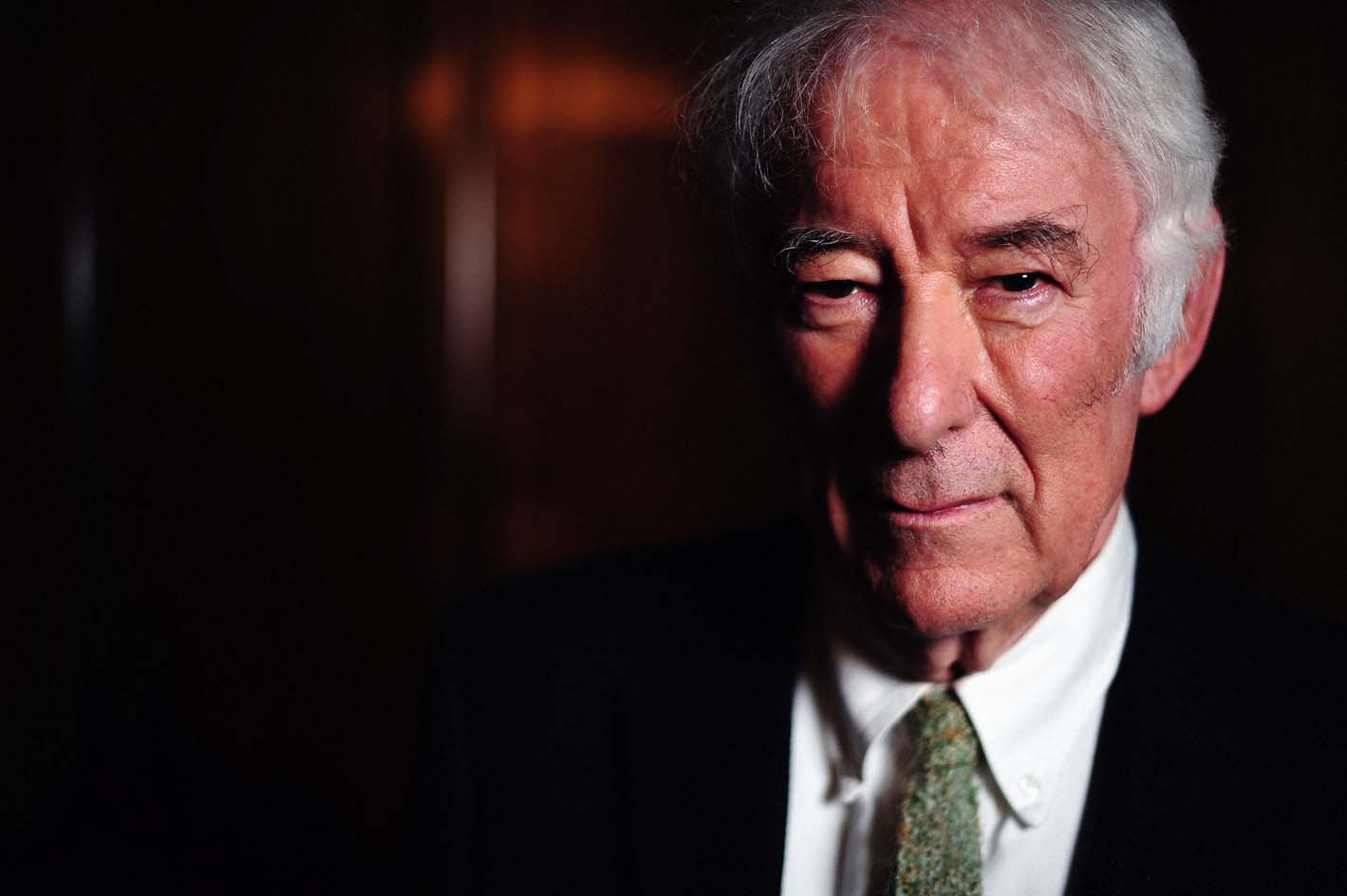In memory of Seamus Heaney, the great Irish poet who died today, here is my 2011 Wall Street Journal review of American Players Theatre’s production of The Cure at Troy, adapted by Heaney from Sophocles’ Philoctetes.
* * *
Professional productions of the Greek tragedies seem to be growing less common in America–the last time I reviewed one was in 2008–and so American Players Theatre’s revival of “The Cure at Troy,” Seamus Heaney’s adaptation of Sophocles’ “Philoctetes,” is of interest for that reason alone. But APT’s staging, directed by David Frank, the company’s artistic director, is no curiosity. It is, in fact, an overwhelming theatrical experience, a show whose emotional impact is nothing short of shattering. If you’re fortunate enough to see it, you’ll remember it for as long as you remember anything.
 “Philoctetes,” in which Sophocles dramatized the myth of the wounded Greek warrior (David Daniel) who was deserted by Odysseus (Jonathan Smoots) and his comrades, was largely forgotten save by classicists when Mr. Heaney published his English-language adaptation in 1991, four years before he won the Nobel Prize. “The Cure at Troy” is a masterly piece of versification, at once unpretentious in diction and elevated in tone. Without distorting the play’s meaning, Mr. Heaney has subtly emphasized its continuing relevance, placing lines in the mouths of the chorus that liken the furious Philoctetes’ self-consuming desire for revenge to the irredentist madness of Northern Ireland, the land of the poet’s birth: “So hope for a great sea-change/On the far side of revenge./Believe that a further shore/Is reachable from here.”
“Philoctetes,” in which Sophocles dramatized the myth of the wounded Greek warrior (David Daniel) who was deserted by Odysseus (Jonathan Smoots) and his comrades, was largely forgotten save by classicists when Mr. Heaney published his English-language adaptation in 1991, four years before he won the Nobel Prize. “The Cure at Troy” is a masterly piece of versification, at once unpretentious in diction and elevated in tone. Without distorting the play’s meaning, Mr. Heaney has subtly emphasized its continuing relevance, placing lines in the mouths of the chorus that liken the furious Philoctetes’ self-consuming desire for revenge to the irredentist madness of Northern Ireland, the land of the poet’s birth: “So hope for a great sea-change/On the far side of revenge./Believe that a further shore/Is reachable from here.”
Not surprisingly, “The Cure at Troy” was taken up by drama companies throughout the English-speaking world, but it has been a number of years since it last received a noteworthy American production. Fortunately, this modern-dress version, which is being performed by a cast of six in APT’s gemlike 200-seat thrust-stage indoor theater, is completely worthy of the play. Mr. Frank and Robert Morgan, who designed the set and costumes, have presented “The Cure at Troy” with the utmost simplicity. The scene is a barrel-strewn waterfront that bears an eerie resemblance to a jigsaw puzzle. In this desolate space, Messrs. Daniel and Smoots vie for the loyalty–and the soul–of Neoptolemus (Paul Hurley), a young soldier who is torn between patriotic duty and personal honor. No more than Sophocles or Mr. Heaney does Mr. Frank seek to simplify Neoptolemus’ dilemma, and it is precisely because of this hard honesty that the divine illumination that ends the play carries the wrenching force of true revelation.
Three of the cast members are part of APT’s resident ensemble, and they give performances so compelling that you’ll want to hold your breath each time they speak. Mr. Daniel’s Philoctetes is a coolly urbane gentleman-warrior whom pain has reduced to a shrieking shadow of himself. Mr. Smoots’s Odysseus is a rich-voiced cynic who is quick to heed the reassuring call of expediency. And Sarah Day, the leader of the three-woman chorus, narrates the unfolding tragedy with the world-weary wisdom of one who knows in her bones that understanding and forgiveness are not the same thing.
All three, like Mr. Frank and the other members of the cast and production team, have placed their talents wholly in the play’s service. As a result, Mr. Heaney’s most telling lines come across so clearly, even nakedly, that you can hear the audience gasping with the shock of recognition (“War has an appetite/For human goodness but it won’t touch the bad”). Anyone who doubts the permanent significance of the classics should pay heed to those gasps. It says much about man’s unchanging nature–and the miraculous power of art to efface time and space–that they should be provoked by a play that was first performed more than 2,000 years ago.
Terry Teachout on the arts in New York City
An ArtsJournal Blog
